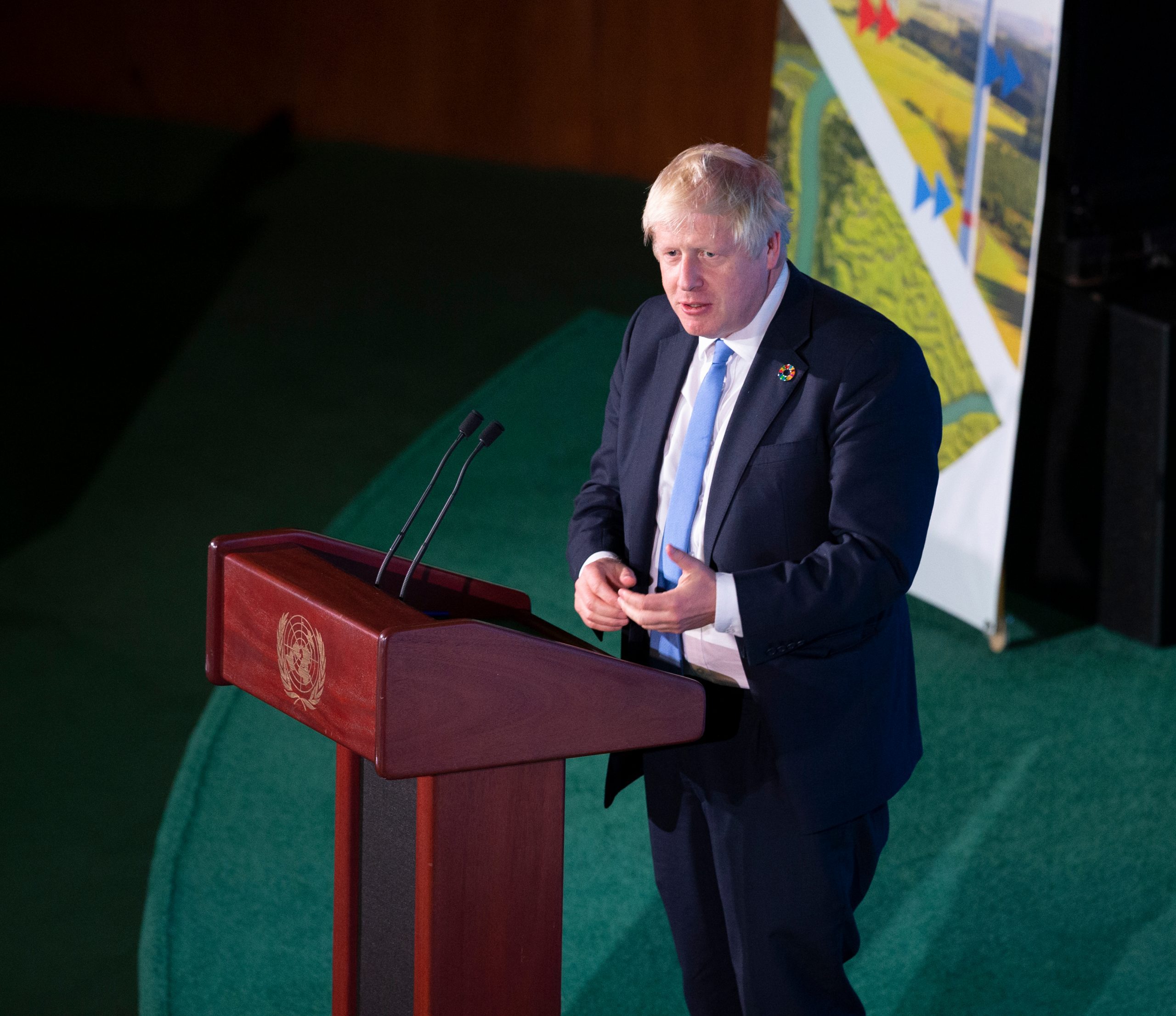Use the Climate Issue to Save the Anglo-American Alliance

It is now more than three and a half years since President Donald Trump announced that the U.S. would cease all participation in the Paris Agreement on climate change mitigation. He alleged at the time that the accord would “undermine [the U.S.] economy” and “put [the U.S.] at a permanent disadvantage.”
The move was in keeping with his “America first” method of leadership. Mostly, though, withdrawing from the Paris agreement was President Trump’s way of sticking two fingers up to the environmentalist movement. At the time, according to Pew Research data, just 8 percent of conservative Republicans believed that climate scientists knew what they were talking about, with that figure rising only to 11 percent among moderate GOP voters. Trump was both playing to his base and signaling to the rest of the world that his fierce nationalism was not just a stunt for the campaign trail.
Since then, a lot has changed. Over the past few years, the world has woken up to the reality of climate change. A poll conducted last year by the Conservation Coalition found that a whopping 90 percent of Republicans would have a more favorable view of President Trump if he were to acknowledge the reality of climate change and embrace a conservative approach to tackling it by prioritizing clean energy and green innovation.
The worldwide transformation on this issue has relegated Trump’s brand of climate denialism to the history books. The idea that we must choose between the environment and blue-collar jobs—the notion that there is a trade-off between economic success and saving the planet—was heartily rejected by the American electorate in November of last year.
As a result, President Joe Biden is set to bring the U.S. back into the Paris agreement via executive order. This is an encouraging signal for environmentalists everywhere—the restoration of American leadership on issues like climate change on the international stage will allow the rest of the Western world to breathe a sigh of relief.
Unfortunately, the issue is not concluded there. The Democratic base will no doubt enjoy watching President Biden undo his predecessor’s flagship climate policy within days of taking office. But the accord itself is largely insignificant. It essentially consists of a list of carbon emissions targets that member states pledge to hit.
Yet over the last few years, it’s become clear that those targets aren’t being met. Emissions in 2019 were around 4 percent higher than in 2015 when the agreement was signed. The vast majority of countries signed up to the accord have not come close to hitting their targets, which is perhaps unsurprising given that there is no binding enforcement mechanism. The targets set out by the agreement are supposed to culminate in global net-zero carbon emissions by 2050—as things stand, that seems wholly unachievable.
The problem runs deeper still. Even if each country that is signed up to the accord managed to hit every one of its targets—entirely voluntarily and at great economic cost—it would still not be enough to win any noteworthy victory in the fight against climate change.
The scientific consensus is that the difference in global temperature between the pre-industrial past and the end of the current century ought to be “well below” 2 degrees Celsius. Even an increase of 1.5 degrees is likely to precipitate the collapse of East Antarctic glaciers or wintertime Arctic sea ice. The data suggests that, in reality, we are on course for an increase of between 3 and 4 degrees Celsius by the year 2100.
Evidently, rejoining the Paris Agreement is not enough. The Biden administration will need to go further on climate change. Assuming that the government does not slip into complacency—or, worse, succumb to calls for radical eco-socialism from the far left—there is only one logical place to look for sensible climate cooperation: Britain.
The British government has been stepping up its climate fight. Later this year, COP26, the momentous international climate conference, will be held in Glasgow, Scotland. Prime Minister Boris Johnson recently made one of his most senior cabinet ministers its full-time president, reportedly at the behest of President Biden’s climate czar, John Kerry.
Now that the tumultuous Brexit chapter of British political history has finally concluded, the UK is in the process of realigning itself. Dominic Cummings, Boris Johnson’s de facto chief of staff, resigned in a blaze of media drama last year, taking some of the government’s top advisers with him, barely a week after the American election. His departure is widely seen as indicative of the Johnson government’s desire for a softer, gentler politics in 2021, which includes—among other things—closer cooperation with the U.S. and real progress on climate change.
Following a rollercoaster of relations with the Trump administration, Britain’s leaders are aching to be viewed favorably by President Biden and his team, and climate action is an area of significant overlap between the visions of the two governments. Conditions are perfect for a climate-based renewal of the Special Relationship.
The upcoming U.S.-UK free-trade negotiations present the ideal opportunity to build new bridges across the Atlantic, setting an example for the rest of the world and providing international leadership that’s been sorely lacking in recent years. The president has already drawn grins across Westminster by naming the UK as the venue for his first international visit.
Under President Biden, the U.S. can lead the world on climate change. Rejoining the Paris Agreement sends positive signals, but it isn’t enough, and the new administration knows that. Only by extending an arm of friendship and cooperation will the new government achieve real results on an international level—and London is the place to start.
Jason Reed is UK Liaison at Young Voices, a policy fellow at the Consumer Choice Center, and a communications associate with the British Conservation Alliance. He writes for the Times (of London), the Telegraph, the Independent, and several others. Follow him on Twitter @JasonReed624.
Comments